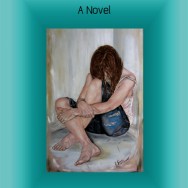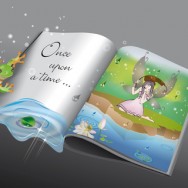Posts by Susan Crossman
What Goes into a Good Story? Part 2
Our last blog post started a conversation about what I think goes into a good story and I’d like to add more to the discussion today. I don’t think this is an exhaustible topic by any means and I admire, and learn from, people in many walks of life who use stories in their communication. In terms of a novel, however, there are a few things that probably should be present and here are a few more ideas: Make Sure to Include Conflict The more impossible the conflict is, the more interesting your novel will be. Sad to say, there is nothing more boring in a novel than a character whose life is in perfect order, whose relationships are all smooth and sunny and who has always loved their job. For pity’s sake, give them flaws and weaknesses, enemies and inadequacies. Show us the scheming uncle, the mean-spirited mother, the spouse with no backbone and the cousin who is out to take your character’s meagre savings of. Engage us with drama and intrigue! Give yourself permission to say things that are not nice! That’s what keeps us reading. There have always been two sides to a story. Good and Evil. Make sure we know which one is which. If there aren’t any suitable characters to rage against, make sure your character has a good dose of conflict with someone or something. They can be pitted against Fate or God, Technology, Nature, the Supernatural, or even, God help us, themselves. Let’s have fear and anxiety, insecurity and failure. It all makes for wonderful reading. Symbolism If you want to have fun with your story, be sure to use a little symbolism. There are reams of information available online about symbols and symbolism but to be honest, I don’t think many of us want to be overwhelmed with it all the time. My favourite use of symbolism is subtle, gradual, so that I see the round table at which the lovers sit and think “Ahhh—Eternity!” But please don’t give us all another black cat to ponder. That was probably old in Methuselah’s time. Foreshadowing I think foreshadowing is a lovely technique for waking up the dark recesses of the brain and, again, it requires a gentle touch. If it’s too obvious, your readers will know the end game before we’re half way through, and if you’re too ham-fisted it won’t be fun to read what you’ve written. But subtle clues keep us on the edge of our seats, holding our breath, and wondering, “Was the author foreshadowing the character’s death? Or not?” Give us the delight of not knowing! Theme I love working with themes and I quite often use them in my business writing, as well as in fiction. Ideally, a theme is like a quiet river of thought running underneath the texture of the words. A theme is a central idea or insight that unifies your story. Take “loyalty,” for example. You might highlight the abuse of loyalty through the actions of one character and its desirability through the actions of another. It might be pure and sweet in the behaviour of a child and completely disregarded in the mind of a miserly grocer. But think about what you want to say about loyalty (or whatever theme you’re playing with) and bring that commentary out through the interaction of your characters. Have you started a novel? Would you like some help completing or editing it? I invite you to visit my business website to see some of the ways I work with authors and if you see something there that resonates with you, please get in touch!...
Read MoreWhat Goes into a Good Story? Part 1
I began writing professionally since 1982 and although I’ve only been playing at the creative side of the writing equation for a dozen years or so, I’ve assembled a number of humble opinions about how to write stories. I’ve noticed that a lot of people make a lot of money teaching budding authors how to write a novel and much as I respect the transfer of knowledge, I think that it is just as important for a writer to unleash their imagination and allow the story to develop as it will. Fiction writing is one of those rare occupations that requires a certain amount of structure at the same as it requires unbridled imaginary abandon. It is creative and formulaic, to some extent, both at the same time. If you are new to the idea of writing fiction, I would like to suggest the most important work you will ever do lies in giving yourself permission to invent. Exposition is the part of your story that provides the reader with important background information. Sometimes you need to provide some backstory that is not directly part of the action itself. If you’re too wordy with it, you risk forcing your readers to tune out. To get around that, authors might use a flashback or have the character talk about his or thoughts of the past: “When I was a child, I didn’t realize that my family was unlike others.” Or the character might project some of the story into the future: “It wasn’t until I grew up that I realized we were different.” And speaking of characters… We generally have at least two characters in a novel – the hero (back in high school he or she would have been called the protagonist) and the Hero’s nemesis, who I would generally think of as the antagonist. The Hero drives the action of the story and we’re really reading the story to find out about his or her adventure – be it physical, emotional or spiritual. While the hero may have numerous friends and supporters, he or she is brought into conflict with the antagonist – the person or group who does not want the hero to succeed. Ideally you want your hero’s life to be miserable. Readers love to see a hero struggle, and the more impossible you can make their journey, the more inspirational their success will be at the end. Bear in mind that the success doesn’t mean they have to be alive at the end of the book (although I personally prefer happy endings), but rather that their goal or journey ideally needs to evince some level of triumph. Readers generally like to see some sort of personal evolution in the characters in a novel, and you will keep people most engaged if you make your characters easy to visualize – describe their appearance and personality quirks, give them dialogue that allows them to express their deepest thoughts and feelings, make them move and make sure there are plenty of gestures: a raised eyebrow, a quiet smirk, a toss of the hair, a well-timed sneer. Don’t forget to show your readers how your characters are feeling! Watch for the next blog featuring the second part in the creative writing process! If you would like to order a copy of either my novel, “Shades of Teale” or my book of creative non-fiction stories, “Passages to Epiphany,” you can either get in touch with me directly at susan@crossmancommunications.com or find them on...
Read MoreWhat Makes Fiction “Fiction?”
I meet many people who have reached a point in their lives where they can no longer keep their inner fiction writer trapped inside. Despite decades of more or less normal existence, they are driven to finally try their hand at creating a story and, if possible, to get it published. I get so immersed in my work as a writer and an editor that I sometimes forget that not everyone knows the difference between fiction and non-fiction. So for anyone who scratches their head over that distinction, here it is: A fictional story is about imaginary people, places or events. Novels and short stories are works of fiction. A non-fiction book is about real people, places or events. Biographies and textbooks are examples of non-fiction books. Aspects of a novel might seem real (indeed, the best writing of any sort tends to be believable) or it might be “based on a true story.” Writers of fiction often spend countless hours researching the era in which they are setting their book, or the landscape in which the story unfolds. But the details of the story itself are invented. We can get very technical describing the various parts of a novel and I’ve never been big on technicalities. If you’re writing a novel yourself, you will probably want to become familiar with a few terms, however, so you have a handle on what you’re doing. When I wrote my first novel, Shades of Teale, I didn’t have a clue what I was doing: I jumped in and wrote the thing and had agonies of repair work to do after. This was all well and good but that might be part of the reason it took me 13 years to complete. Let’s save you some time, shall we, and look at what goes into a novel: Plot is the unfolding of what happens in a novel and it usually revolves around what the character(s) do, say and think. There needs to be action in a novel in order to keep your readers engaged in your story. Your plot, sometimes referred to as your storyline, needs to unfold in a logical, orderly way so your readers don’t get confused and put the book down in favour of other, more interesting activities like dusting the blinds or folding the laundry. Your plot has a beginning, a middle and an ending, and there may be lots of detours on the road between each point. Typically a character takes action, which is then followed by an emotional reaction and then a response. Plot is often depicted as an arc with a zig-zag line to represent the rise and fall of action. Plot also has a mid-level structure: scene and summary. I’ll have more to say on the topic in my next blog. But in the meantime, have you started a novel? Would you like some help completing or editing it? I invite you to visit my business website to see some of the ways I work with authors and if you see something there that resonates with you, please get in...
Read MoreHave you ever thought about writing a book?
Becoming a published author was a dream come true and when I first held my traditionally published novel, “Shades of Teale,” in my hands, I was thrilled beyond belief. There it was, my book, with my name on it, and the thrill of achievement set my heart alight. It took me 13 years to write that book, primarily because it was a guilty pleasure that took time away from my work as a professional writer, my dedication to a growing family, and, ultimately, the tragedy of nursing my husband through a brutal cancer experience that resulted in his early death. There were many reasons not to keep going. Who did I think I was to want to write a book? Who was ever going to want to read this thing? I persevered and eventually I landed a publishing contract with Manor House Publishing. It was a euphoric moment and it represented the beginning of a publishing adventure that will see the release of my third book this fall. My life did indeed change with the publication of my first book. I now edit book manuscripts and provide insight into how my clients can navigate the challenging and changing waters of today’s book publishing landscape. It’s exciting work! And I’ve come to realize that people need more than just an editor. The process of writing a book itself is challenging and it breaks my heart when I hear of someone who started to write their book and then let life convince them to set it aside. As a result, I’ve decided to develop new products and services to help people who need a boost get traction on their book-writing projects so they, too, can feel the joy of becoming a published author. And I’m looking for insight into what people feel they need. If you or anyone you know has started writing a book but is having trouble completing it (for whatever reason), I would be most grateful if you would ask them to complete my survey at: http://susancrossman.polldaddy.com/s/author-ease. I’m going to collate all responses and begin developing the antidote to “Author Freeze”—we might even call it “Author Ease.” Specifically, I’m wondering if people need organizational assistance, research assistance, book writing coaching or basic writing coaching? Do you need accountability programs or eCourses on how to write a book? Is this a mindset issue? Do you need one-on-one coaching or group coaching programs? I know how tough it was for me to climb Author Mountain and with three published books and a 30-year writing career behind me, I’m excited about the prospect of making it easier for others. If the idea of completing a survey sounds like too much work, maybe you could leave a few comments here instead with your thoughts. All insight is gratefully accepted!...
Read MoreWhat’s So Great About Fiction?
While not everybody I’ve ever met has loved a good story I’d say many of the people I know have, at some point in their lives, enjoyed the telling of an enjoyable yarn. It’s commonly understood that human beings have been telling stories around campfires for millennia and although our story telling media have changed over the generations, I think it’s probably safe to say that the appreciation of a good story has not. So why do people write—and read—fiction? I think a big part of the answer lies in the human need for entertainment. Diving into an invented story is a wonderful way to escape our daily lives and try on a different world for a while. Fiction takes us out of ourselves and into a place of wonder, delight, danger and mystery. It allows us to put down our fears, anxieties and problems for a while and get a break from the distracting worries that sometimes fill our days. Writing fiction allows us to put ourselves in the driver’s seat of collective imagination and help readers try on a world they might not, as yet, have imagined living. It gives us the chance to put in front of our readers an alternate reality that might give them insights into the problems they themselves are facing and perhaps inspire a way of being that is more comfortable, fulfilling or enjoyable. Fictional narrative is about tickling the fancy of readers in a way that non-fiction rarely can. I love a good biography as much as the next person. And while the lives of famous people are usually first-rate stories themselves, there’s something delectable about the possibilities inherent in a story that is, for all intents and purposes, not the least bit true. And such stories help us to wonder, “Could it ever be?” Fictional stories trigger the imagination in ways that non-fiction might not. They allow us to explore worlds that the three dimensions around us don’t admit, to suspend the cold hard facts of our own reality and wander around in a world of “What if?” Fiction allows us to dream, analyze, explain and understand our lives, and our purpose, in ways we hadn’t yet considered. It can surprise us and it can bridge the gap between our own understanding of life and that of another person. As either a writer or a reader of fictional stories, we can enjoy the experience of stretching the envelope of our existence to larger boundaries. And, quite often, stories are just plain fun. And who has too much fun anymore? There’s a special place on our shelves for fiction and although it’s not everyone’s cup of tea, I think it’s safe to say that fiction, with its long history of survival in human society, is here to stay. If you would like to order a copy of either my novel, “Shades of Teale” or my book of creative non-fiction stories, “Passages to Epiphany,” you can either get in touch with me directly at susan@crossmancommunications.com or find them on...
Read More






